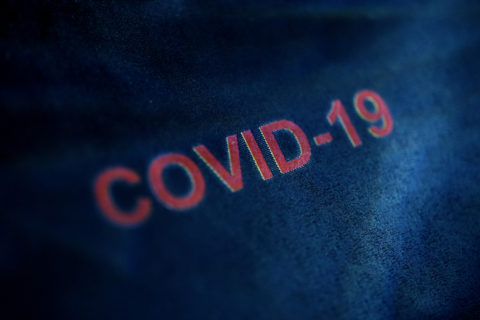Click here to read part 1 and part 2
The Coronavirus has meant thousands of stores are closed. Brands are not accessible in the same ways anymore. Brands don’t want consumers to forget about them. Thus, more brands may think about using AdverGames and gamified marketing campaigns more then ever before to re-engage consumers.
But, there are two big areas of uncertainty when it comes to game-based marketing:
- Uncertainty in the design and application of a game-based marketing
- Uncertainty around ethical guidelines on design and execution (or lack thereof).
We’ll unpack these, and end with some things you do.
1. Uncertainty in the design and application
Gamification isn’t as simple as slapping on a leaderboard and giving away badges in order to transform boring tasks into captivating activities.
Gamification, like the games we play just for entertainment, can be approached in millions of different ways; the aesthetic, rules, bonus features, narrative, goals, and so on, are massively varied. Consider the differences between say, Sonic the Hedgehog games and Call of Duty games. There are so many design and execution choices to be made.
And, because gamification tends to be used to solve multiple commercial problems in one instance (consider a marketing manager who wants to engage consumers, while collecting useful data, while offering a positive brand experience, and all the while hoping the campaign will increase sales) – then this adds even more nuance and variation in how a gamification strategy is approached. The key word here however is ‘strategy’; how you approach a marketing campaign needs a carefully thought-out plan in collaboration with experts. ‘Expertise’ is another key term; if you want to create a gamified marketing campaign, or fully-fledged AdverGame, expert practitioners must be sought. Without expert guidance, ‘DIY’ approaches can increase the likelihood of costly mis-fires.
But herein lies another obstacle. There’s no single directory for Gamification experts, (although anyone looking can have a look at the Gamification conference speakers, and their particular areas of expertise, and get in touch). It’s also a field with no discernable qualifications. Yes, practitioners can showcase their commercial case-studies as evidence of their ability and skill, but there are very few certificate-at-the-end courses available worldwide.
However, while we await universities to catch-up with courses and qualifications, there are experts out there. There are many books, journal articles, papers, presentations and other content on gamification applications and case-studies. Searching sites like ResearchGate, and Academia.edu for papers on gamification in marketing, for example, will yield thousands of results. Try filtering by ‘gamification in marketing’, ‘AdverGames’, ‘promotional games’ and the like to gather relevant material.
2. Uncertainty around ethical guidelines (or lack thereof)
- Marketing loopholes
Some brands have exploited marketing loopholes in the use of AdverGames to subliminally, or sometimes overtly, promote its products (often foods that are high is salt, sugar and fat) to young children. Mexican Grill brand Chipotle won awards for an AdverGame in 2014, but others “remained less enchanted” as journalist Lauren Maffeo wrote for tech news-site TMW, as their approach was felt to be unethical and exploitative.
While AdverGames are nothing new, regulators struggle to keep up and police how AdverGames are being used. Part of the lack of regulation on marketing games is due to what we discussed above; games are so nuanced and vary from one to another, and as such, so are Marketing Games. Therefore, regulators have a difficult task in guiding brands on what kinds of features an AdverGame can or cannot use to promote their products or services; difficult, but not impossible.
- Data ethics and privacy – AdverGames crossing boundaries
With AdverGames increasingly crossing boundaries into other territories, it’s difficult to label what they ‘are’, and thus, harder to regulate.
Consider the app game Covet Fashion – an app where you can dress your avatar to various project briefs i.e. dress for the Oscars! Dress for a day at the office!.
Data is being collected on all the choices players are making – from the brands they choose to wear, colours, sizes and so on. That data is then shared with the brands that Covet Fashion work with, such as Calvin Klein and French Connection. So, is this an entertainment game? And AdverGame? A research tool? A sales tool? The answer is ‘all of the above’. And, with the ability for games to collect data, all forms of digital gamification are arguably ‘Research Games’.
This territory-crossing from marketing to research happens in the other direction too. In 2016, my company Research Through Gaming launched a ResearchGame called ‘What Type Of Student Are You?’ for the University of Surrey in the UK. The ResearchGame has so far been played by thousands of prospective students, and has gained much engagement since it launched (and is still live to this day), with completion rates at an average of 97% for a non-incentivised study. So far, the ResearchGame has featured on the front page of the University’s website, used in newsletters to students, has been posted on their social media, and used as a tool for engagement at the University’s various exhibition stands and open days. So, is it a marketing tool? Or still a research tool? The answer is, well, both.
They key is ensuring that where data-collecting-games cross industries, say from research to marketing and vice-versa, that practitioners manage these crossed boundaries in an ethical and transparent fashion – much of which can be handled in the design itself.
(Note: Bath Spa University in the UK has already prompted for more research and education in this space, and subsequently published a handful of works calling for more regulation, and research reports on AdverGame impact.)
What should you do?
At this point, it might seem like making an AdverGame could step on many toes, but that’s not the case. There are 3 things marketeers can do to ensure that their approach to an AdverGame is as ethical as possible:
Be transparent with consumers
- Tell consumers that your AdverGame is a mode of advertising.
- Tell them how their data will be used, stored, and potentially re-sold.
- I would also go as far as taking similar approach to the wording used for surveys at the beginning of AdverGames (e.g. being clear that the participant can leave the platform at any time, can contact the brand to request removal of data etc).
- Use plain, easy to understand language. Are you collecting data from consumers on not just what they do in your AdverGame, but how long they take to do it? Are you using music and sound effects to elicit emotive responses? Say so. Be clear. Manage expectations all around.
Be transparent with regulators(and educate) clients
- Consult with advertising regulators in your country to understand the best approach for designing your AdverGame for various platforms and audiences, and the best approach for the launch/execution.
- AdverGames are often made by agencies, and often on behalf of big brands. Some of these brands (the ‘client’ in this case) may not fully understand the need for consultation with regulators on both the design and execution approach. Agencies need to make it clear to clients that designer + regulator collaboration is crucial, especially if they want to successfully ‘onboard’ and engage consumers, build bonds, and do so in an ethical fashion.
- You can contact the International Advertising Association, and cross-reference with advice from organizations like ESOMAR if your AdverGame is also collecting data.
Ethical by design: In the first few minutes of playing one of the first released versions of the Harry Potter app game, I was horrified at the situation my character was in. In order for your character to progress in the game, players are tasked to collect gems, or pay real money to build their stores of gems. In one scene my character was being strangled by a magical monster. I was given only one option: pay real money for gems in order to stop the monster strangling my character. The other option (which I wasn’t given, but I could take as a player), was to quit and uninstall the game, and leave an App Store review of my experience, (which I did). While this is the only example of unethical game design I’ve come across in my life, it shows that it only takes one design ‘mistake’ to impact a brand negatively. Watching my character look scared and panicked, a character I took care to design, would have been horrific had I been a young child playing the game. This is NOT ethical design. Ethical design is ensuring that players/consumers feel emotionally and physically safe at all times playing your AdverGame.
At a higher level, there’s more to do.
ASA, the Advertising Standards Authority in the UK, and indeed all advertising authorities globally, must have a closer relationship and collaboration with Market Research governing bodies, such as ESOMAR, the MRS, and other bodies relevant to different regions (i.e. AMSRS in Australia, CRIC in Canada) so that advertising platforms (such as games) that collect data (which may or may not be used for research purposes), not only abide by GDPR but also abide by the many regulations in which market researchers and agencies also undergo in order for the safe and ethical gathering, storage, and usage of consumer data.
Summary – steps to create an effective and ethical AdverGame or gamified marketing campaign:
- Educate yourself: gather papers, case-studies, and other publications to look at the breadth of examples and game-based applications in all industries, not just marketing. What has worked well? What hasn’t? Learn from others.
- Hire a gamification expert – look at past examples of their work, results, and both client and player feedback.
- Build a strategy that ticks all your commercial boxes – AdverGames, like any other mode of marketing, should be used in conjunction with a business strategy, and preferably with measurable, quantifiable outcomes.What are you hoping your AdverGame will achieve?
- Embed ethical approach by design – consult with gamification practitioners yes, but also consult with regulators in the advertising industry, market research industry, and the games industry. Even share with them graphics or Beta versions of your AdverGame by way of example.
And remember, in these uncertain times, brands can also be a force for good. Please communicate with your consumers on how your brand can/is helping individuals and communities.


